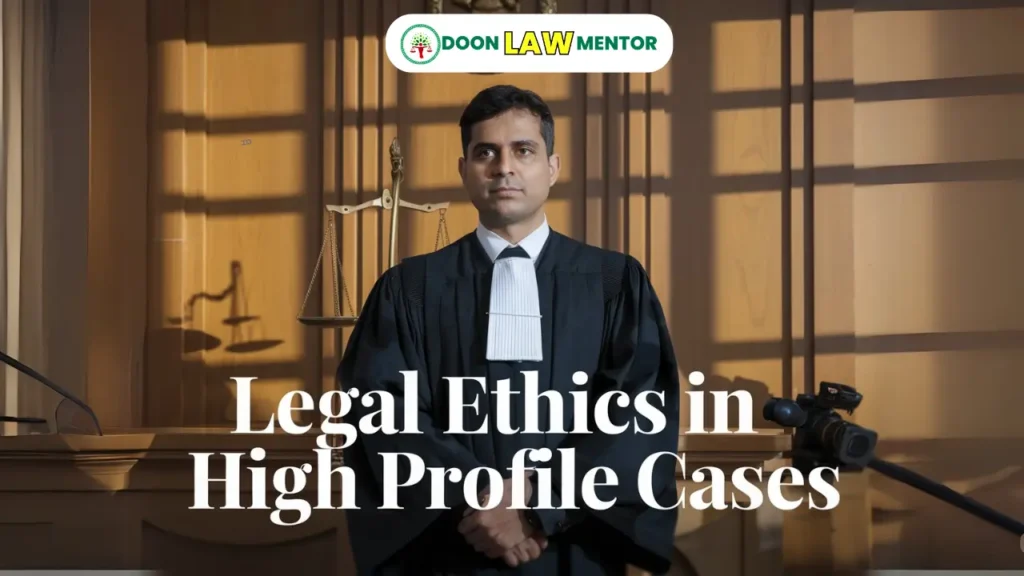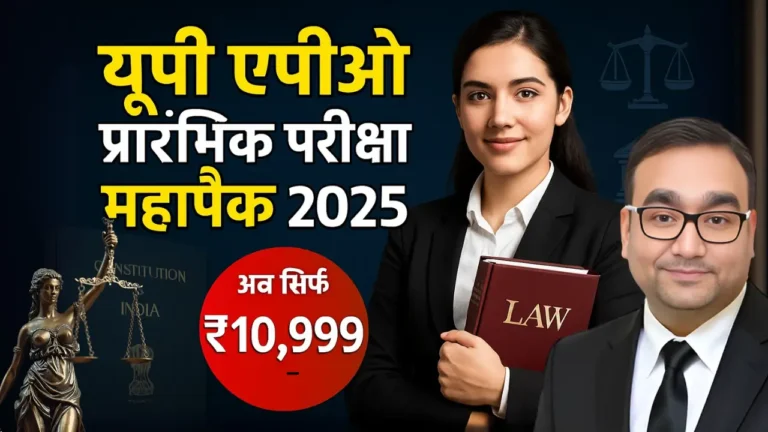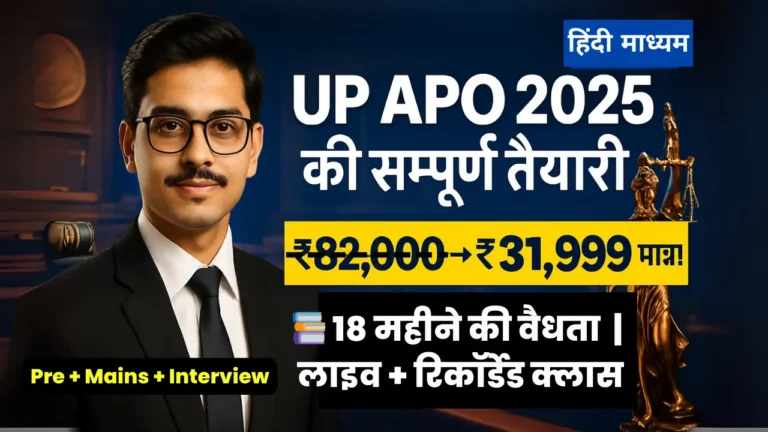Ethical challenges in legal representation are magnified in controversial cases in India, testing lawyers’ professional duties and moral compasses. This article explores the intricacies of handling such cases while maintaining integrity, ensuring justice, and navigating public scrutiny.
Legal professionals play a vital role in ensuring justice and upholding the rule of law. However, representing clients in controversial cases—those involving heinous crimes, corruption, terrorism, or public figures—poses significant ethical challenges. In India, these cases often garner intense public scrutiny, placing lawyers in a dilemma between their professional duties and societal perceptions.
This blog delves into the ethical challenges faced by legal representatives in controversial cases in India and offers insights into how these issues can be navigated.
Table of Contents : Ethical Challenges in Legal Representation
Introduction to Legal Ethics in India
Legal ethics form the backbone of professional conduct for lawyers. In India, the Advocates Act, 1961 and the Bar Council of India (BCI) Rules outline ethical obligations for legal practitioners, emphasizing:
- Upholding the dignity of the profession.
- Defending the rule of law.
- Providing representation without fear or favor.
However, in controversial cases, lawyers face heightened scrutiny and criticism, often testing their commitment to these principles.
Defining Controversial Cases
Controversial cases typically involve:
- High-profile defendants: Politicians, celebrities, or business magnates.
- Serious allegations: Rape, murder, corruption, or terrorism.
- Public outrage: Cases that trigger widespread societal debates.
Examples include cases like the Nirbhaya Gang Rape Case (2012), Jessica Lal Murder Case (1999), and recent corruption trials involving political leaders.
The Role of Lawyers in the Justice System
Lawyers are not just advocates for their clients but also officers of the court. Their role includes:
- Ensuring Fair Trials: Defending the accused ensures that justice is administered fairly and impartially.
- For instance, the legal defense in Ajmal Kasab’s trial upheld India’s commitment to providing justice, even to perpetrators of heinous crimes.
- Preserving Constitutional Rights: Upholding the fundamental rights of individuals, such as the right to a fair trial under Article 21 of the Indian Constitution.
- Acting Without Prejudice: Representing clients without personal bias or societal pressure, regardless of public opinion.
Key Ethical Challenges in Legal Representation in Controversial Cases
1. Balancing Professional Responsibility and Public Perception
Lawyers defending unpopular clients often face:
- Public criticism: Being labeled as “supporters of criminals.”
- Threats and harassment: From victims’ families or activist groups.
Example: In the Nirbhaya case, defense lawyers were publicly condemned for their remarks, sparking debates on their ethical obligations.
2. Ensuring Client Confidentiality
The principle of attorney-client privilege mandates lawyers to keep client information confidential. In high-profile cases, leaks can:
- Compromise the defense strategy.
- Undermine trust between lawyers and clients.
3. Moral Dilemmas in Criminal Defense
Lawyers often grapple with questions like:
- “Should I represent someone accused of heinous crimes?”
- “Does defending a guilty client make me complicit?”
4. Media Trials and Their Impact
In India, sensationalism by media can:
- Prejudice public opinion.
- Influence judicial proceedings.
Example: The media’s role in the Aarushi Talwar Case led to accusations of biased reporting and interference in the justice process.
Legal Framework Governing Ethics in India
- Advocates Act, 1961: Governs the conduct of lawyers, emphasizing their duty to the court, clients, and society.
- Bar Council of India Rules: Details professional standards, including:
- Duty to accept briefs irrespective of personal opinions.
- Duty to act fearlessly.
- Contempt of Court Act, 1971: Protects judicial processes from undue influence, including media interference.
High-Profile Cases and Ethical Controversies
1. Nirbhaya Gang Rape Case (2012)
Defense lawyers faced widespread criticism for their approach, raising ethical questions about their remarks.
2. Jessica Lal Murder Case (1999)
Public outrage influenced judicial proceedings, highlighting the tension between public opinion and legal ethics.
3. Kasab’s Trial (2008 Mumbai Attacks)
The state-appointed defense lawyer faced threats for representing a terrorist, showcasing the perils of fulfilling constitutional duties.
4. Ayodhya Verdict (2019)
The case brought into focus the fine line between professional obligations and societal sensitivities, given the religious undertones.
Strategies to Address Ethical Challenges
- Adhere to Ethical Guidelines: Strict compliance with the BCI Rules and Advocates Act.
- Educate the Public: Raise awareness about the lawyer’s role in ensuring justice.
- Maintain Professional Integrity: Avoid inflammatory remarks or actions that could escalate tensions.
- Leverage Technology: Use secure platforms to safeguard client confidentiality.
- Seek Institutional Support: Bar associations should support lawyers facing undue pressure or threats.
FAQs
1. Why do lawyers defend clients accused of serious crimes?
Every individual has a right to a fair trial. Lawyers ensure the justice system functions impartially, irrespective of public opinion.
2. What happens if a lawyer breaches ethical obligations?
The Bar Council of India can impose penalties, including suspension or disbarment.
3. How can lawyers handle media scrutiny?
By focusing on legal duties, avoiding public comments, and seeking court interventions against prejudicial reporting.
4. Are there cases where lawyers refused representation?
Yes, in rare instances, lawyers may refuse briefs if it conflicts with their personal beliefs, provided it doesn’t violate professional duties.
5. How can public perception of lawyers be improved?
By educating the public on the importance of legal representation in upholding justice.
6. What is the role of the judiciary in protecting lawyers?
The judiciary can intervene to protect lawyers from undue harassment or threats, ensuring their independence.
Conclusion of Legal Representation in Controversial Cases
The ethical challenges of legal representation in controversial cases in India highlight the delicate balance lawyers must maintain between their professional duties and societal expectations. Upholding the principles of justice, fairness, and integrity, even amidst public scrutiny, is essential to sustaining the rule of law.
Legal professionals must remain steadfast in their commitment to ethical practices, ensuring that justice is served—not just in the courtroom but in the eyes of society as well.
#LegalEthics #ControversialCases #IndianLawyers #JusticeInIndia #EthicalLawPractice #DoonLawMentor







